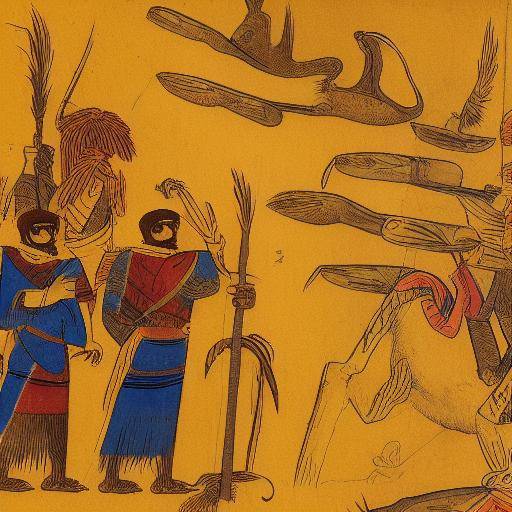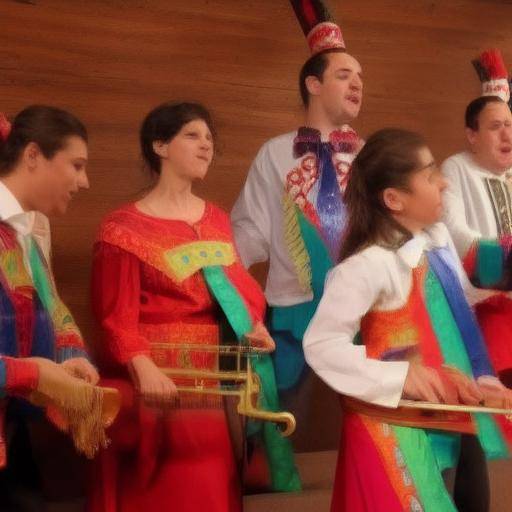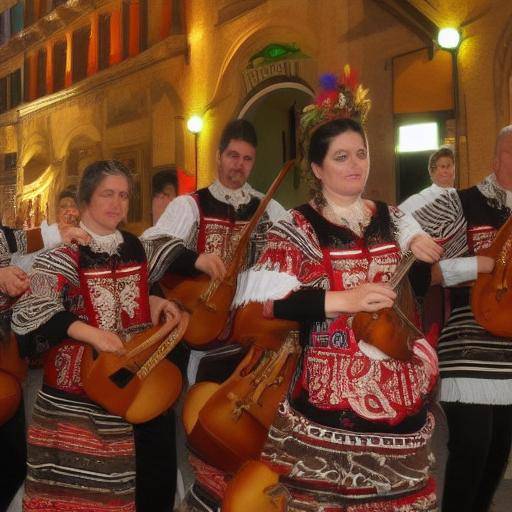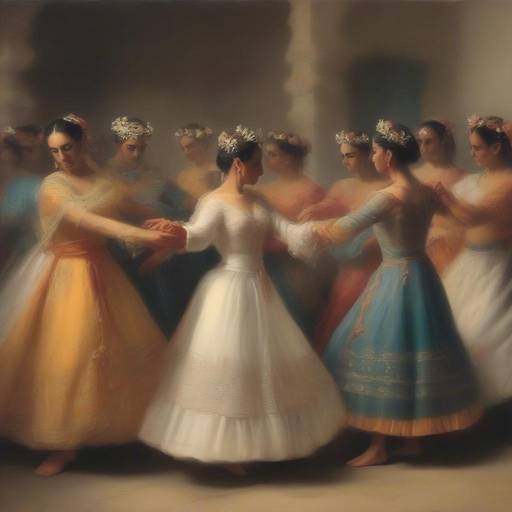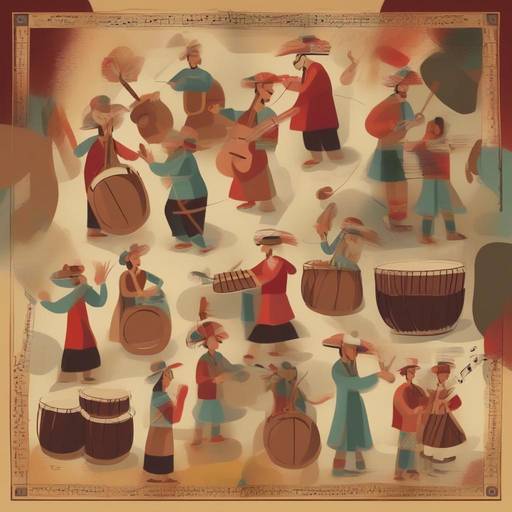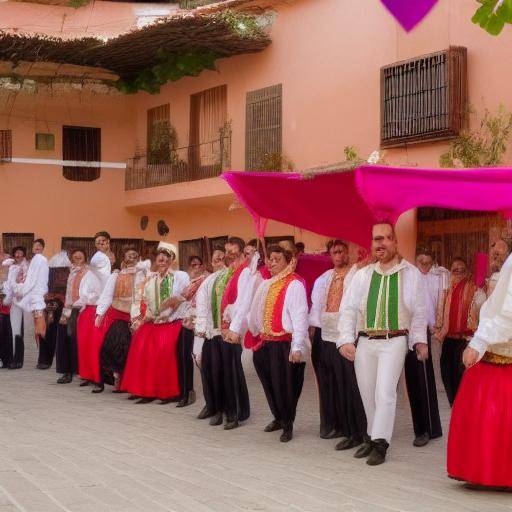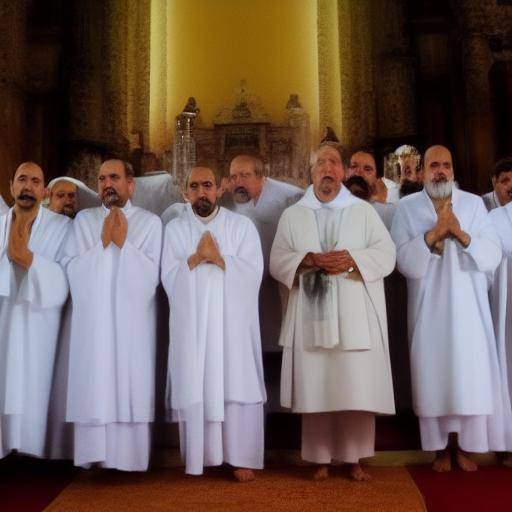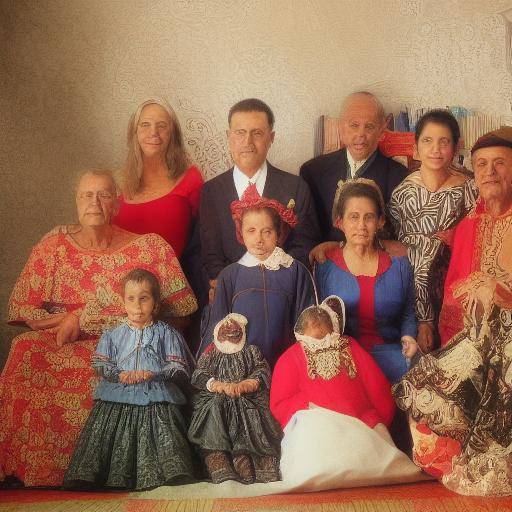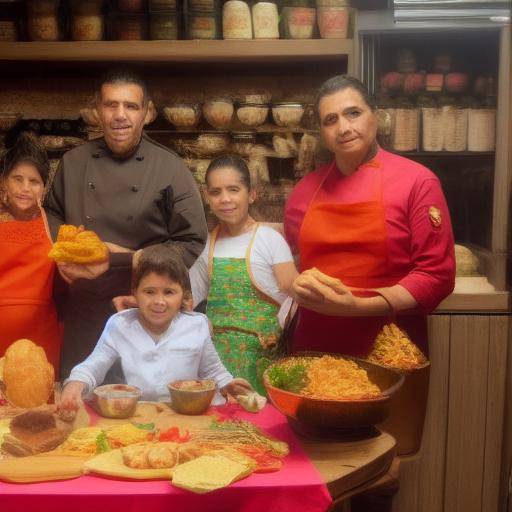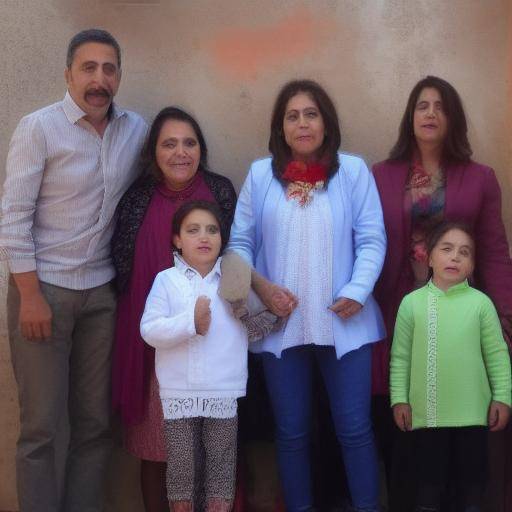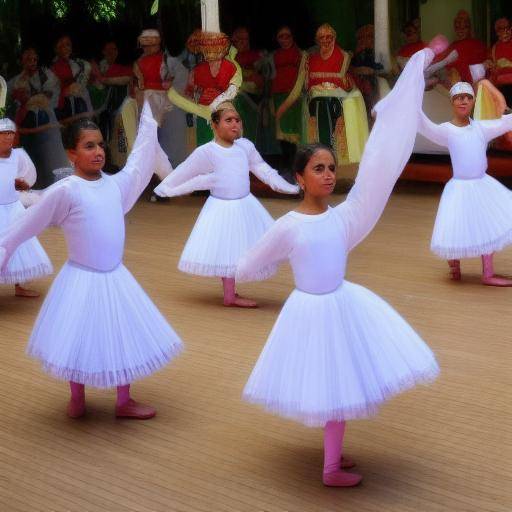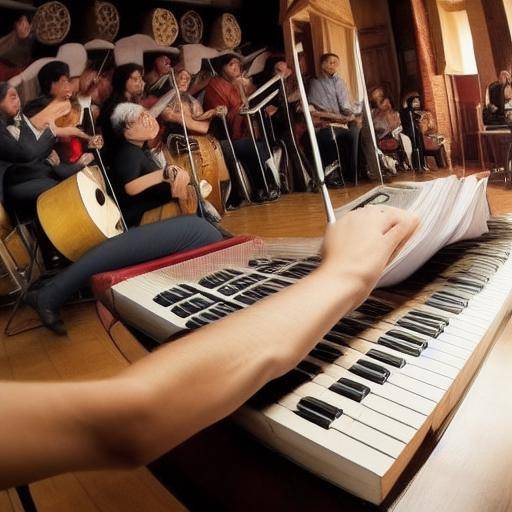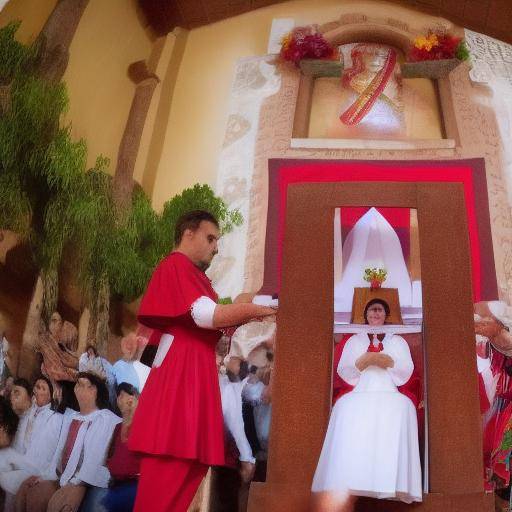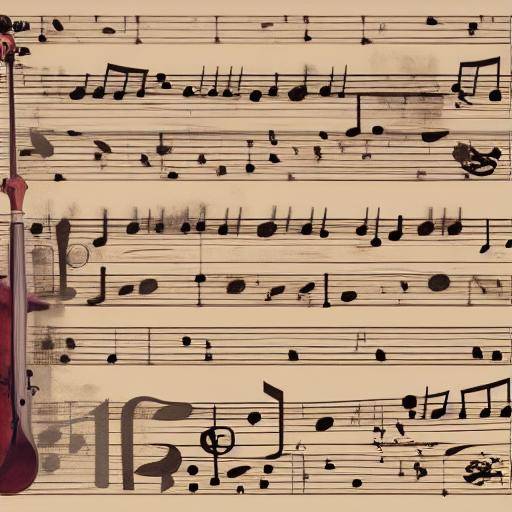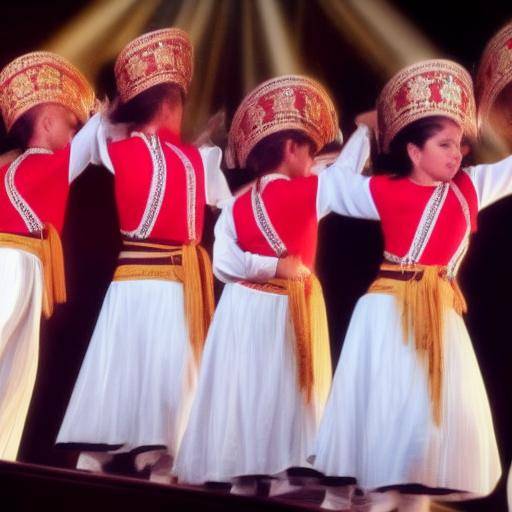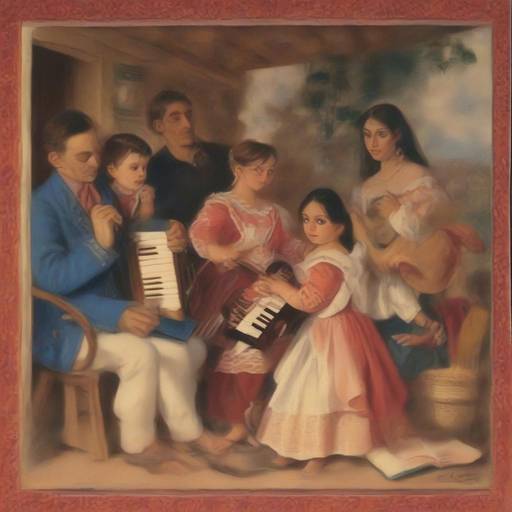
Music is an integral part of the culture and traditions of a society, and the family plays a crucial role in the transmission and preservation of these artistic expressions. In this article, we will explore the influence of the family on musical traditions, from its historical impact to its relevance today. We will discover how the family influences the formation of musical traditions, how these are transmitted from generation to generation and their importance in today's society.
Introduction
Music and traditions are closely linked to the cultural identity of a society. Through these artistic expressions, values, beliefs and experiences are transmitted that shape the way a community perceives itself and the world around it. In this context, the family acts as a fundamental vehicle for the transmission and preservation of musical traditions. From teaching musical skills to participating in cultural festivals and events, the family plays a central role in the development and perpetuation of musical expressions that define a community.
In this article, we will explore the multifaceted role of the family in promoting and preserving musical traditions. From the transmission of musical knowledge and skills to the promotion of active participation in cultural events, we will examine closely how the family influences the wealth and diversity of musical expressions in different cultural contexts. Throughout this journey, we will also consider the challenges facing musical traditions in the modern world and how the family can play a crucial role in its preservation and evolution.
History and Background
Musical traditions have deep roots in the history of humanity. From ancient civilizations to contemporary societies, music has played a fundamental role in cultural expression and intergenerational transmission of traditions. Featured historical examples include the role of music in religious rituals, community celebrations and artistic expressions that reflect the social and political realities of their time.
The transmission of musical traditions from generation to generation has been a common phenomenon in many cultures. Through training, participation in cultural events and the integration of music into everyday life, families have played a crucial role in keeping alive the musical legacy of their ancestors. This role has been particularly evident in communities where music and cultural traditions have served as a way of preserving identity against external influences.
Analysis in Deep
In the modern world, the transmission and preservation of musical traditions face significant challenges. Globalization, the influence of the media and changes in family structures have had an impact on how musical traditions are transmitted and perpetuated. Despite these challenges, the family continues to play a crucial role in promoting and preserving musical expressions.
Music has shown many benefits for families. From fostering family cohesion and strengthening intergenerational ties to promoting the emotional and cognitive development of younger members, musical traditions play a vital role in the social fabric of a family. Active participation in music can also strengthen cultural identity and provide a sense of belonging to the community.
Despite these benefits, there are challenges associated with the transmission of musical traditions within the family context. The generation gap, the availability of resources and the influence of the media are just some of the factors that can affect the promotion of traditional music in the family. However, the need to preserve and promote musical traditions has led to the adoption of innovative and collaborative approaches involving the family, schools and communities in general.
Comprehensive review
The role of the family in musical traditions goes beyond the transmission of musical abilities from one generation to the next. It also implies the promotion of values such as teamwork, harmony and creativity, which are fundamental to the integral development of individuals. In this regard, musical traditions provide a fertile ground for the formation of identity and the development of social skills in a safe and encouraging family environment.
The multifaceted role of the family in musical traditions is reflected in the diversity of approaches and practices used in different cultural contexts. In some families, music can be a central activity that unites several generations around the creation and appreciation of musical expressions. In other cases, music can serve as a means to inculcate cultural values and strengthen family ties in the context of celebrations and community events.
The promotion of musical traditions within the family can also have a significant impact on the preservation of cultural diversity. By fostering appreciation for traditional music, families can contribute to the preservation of unique musical expressions that reflect the richness and variety of world cultures. This active promotion of cultural diversity in the family context can be particularly relevant in increasingly globalized societies, where the preservation of local traditions acquires a fundamental importance.
Comparative analysis
In examining the role of the family in musical traditions, it is essential to compare and contrast how different communities address this issue. While in some cultures music can be a central element in family life, in others it can occupy a peripheral place. This variability in the importance given to music within the family reflects the differences in historical values, traditions and contexts that characterize societies around the world.
Despite these differences, there are notable similarities in the way music unites families and strengthens intergenerational ties. Whether through participation in traditional festivals, the teaching of musical instruments or the creation of music in the family environment, music can serve as a universal language that transcends cultural and linguistic barriers. This capacity of music to join families around a shared activity emphasizes its importance as a vehicle for cultural transmission and enrichment of family life.
Practical Tips and Recommendations
If you want to promote musical traditions in your family, here are some practical tips and recommendations to bring music to your home:
- It promotes active participation in community musical events.
- Explore and share traditional music from your own culture or other cultures.
- It involves all family members in musical activities, such as singing together or learning to play instruments.
- Assist concerts or live musical shows as a family.
Industry Perspectives and Expert Reviews
In consulting experts in musical and folklore education, it is clear that the role of the family in the promotion and preservation of musical traditions is fundamental. "Music is a powerful way to connect generations," says Dr. María Gutiérrez, expert in ethnomusicology. "When the family incorporates music in their daily lives, it not only transmits a cultural legacy, but also strengthens family ties and promotes the personal development of its members."
These industry perspectives and expert opinions confirm the cultural and emotional importance of musical traditions in the family context. Music not only enriches everyday life, but also plays an essential role in the transmission of values, the promotion of the roots to cultural heritage and the promotion of creativity in the family.
Case Studies and Applications in Real Life
Throughout the world, there are many examples of families who have dedicated time and effort to promote and preserve musical traditions. From rural communities to urban environments, families have found creative ways to incorporate music into their daily lives. These case studies illustrate the diversity of approaches and practices that may exist in promoting musical traditions in the family context.
In the Andes region, for example, families have a long tradition of teaching musical instruments, such as zampoña and charango, to their children from an early age. This practice not only conveys musical skills, but also strengthens family ties through participation in festivals and musical events. Andean music has become an integral part of the cultural identity of these communities, providing fertile ground for the transmission of traditions to future generations.
In urban settings, families also find innovative ways to incorporate music into their lives. The practice of attending family concerts, participating in collective music classes or even forming family bands are examples of how music can influence family dynamics and cohesion. These shared musical experiences not only foster the development of musical skills, but also strengthen emotional ties among family members.
Future Trends and Predictions
As the world continues to evolve, musical traditions will face challenges and opportunities in the family context. Globalization, the advancement of technology and changes in family structures will continue to influence how families promote and preserve traditional musical expressions. However, there are also opportunities for the revitalization and renewal of musical traditions in a constantly changing world.
In the future, we are likely to see a greater emphasis on the integration of technology in the promotion of musical traditions in the family context. The creation of digital resources for music teaching, participation in virtual events and the diffusion of musical expressions through online platforms are just some of the ways in which technology can facilitate the transmission of musical traditions in the family.
Moreover, growing awareness of the importance of preserving cultural diversity can lead to renewed interest in the promotion of minority musical traditions in the family context. As families seek to connect with their cultural roots and convey a sense of identity to future generations, we are likely to see a resurgence of traditional music-related practices in an effort to preserve the cultural wealth of humanity.
Conclusions
Music and musical traditions play a significant role in family life, providing a platform for learning, expression and strengthening intergenerational ties. Through the promotion of active participation in musical events, the teaching of musical skills and the transmission of cultural values, the family acts as a powerful agent in the preservation and promotion of musical traditions in society.
In focusing on the importance of the family in promoting musical traditions, this article has explored various aspects of this vital connection. From the analysis of the history and background of musical traditions to the exploration of future trends and predictions, an integral view of the role of the family has been offered in this context. Through case studies, comparative analysis and practical advice, the importance of music in strengthening family ties and preserving cultural identity has been highlighted.
FAQs
Why is family important in promoting musical traditions?
The family plays a key role in promoting musical traditions by providing a safe and enriching environment for the transmission of musical knowledge, skills and values. The active participation of the family in musical events and the promotion of musical practice at home are fundamental to perpetuating traditional musical expressions.
How can families promote cultural diversity through music?
Families can promote cultural diversity through music by exploring and sharing musical expressions from different cultures and traditions. The teaching and practice of traditional music from different parts of the world in the family environment, as well as participation in cultural events, can contribute to the preservation and promotion of cultural diversity.
What is the impact of musical traditions on the emotional and cognitive development of children?
Musical traditions have a significant impact on the emotional and cognitive development of children, as participation in musical activities fosters skills such as concentration, memory, creativity and emotional expression. In addition, music can strengthen self-esteem, promote collaboration and contribute to the emotional well-being of children.
What are some practices to integrate music into family life?
Integrating music into family life can be achieved through participation in concerts or musical events, teaching musical skills to children, such as playing an instrument, and promoting musical creation at home. Assisting cultural events and sharing traditional music of one's own culture or other cultures are also enriching practices.
How can families face modern challenges in the transmission of musical traditions?
To address the modern challenges in the transmission of musical traditions, families can consider the use of digital resources for musical teaching, participation in virtual events and the search for opportunities to explore cultural diversity through music. In addition, promoting active participation in musical events and musical practice at home can help overcome these challenges.
What is the role of music in strengthening intergenerational ties within the family?
Music strengthens intergenerational ties within the family by providing a shared activity that unites different generations around meaningful musical experiences. The transmission of musical skills, participation in cultural events and the exploration of traditional music are ways in which music can strengthen intergenerational ties and promote family cohesion.
Conclusion
In short, the role of the family in musical traditions is fundamental for the preservation and promotion of musical expressions that enrich everyday life and strengthen family ties. In exploring its history and background, its in-depth analysis, its comprehensive review, its practical advice and recommendations, industry perspectives and experts, case studies and applications in real life, as well as future trends and predictions, this article provides an integral view of the impact of the family on musical traditions.
Through this analysis, the lasting value of music is highlighted as a unifying force that transcends cultural and generational barriers. By promoting active participation in music, teaching musical skills and promoting musical events within the family environment, social fabric is strengthened and the wealth of musical traditions is preserved for generations to come. Music, when nourished and shared in the family, comes to life as a cultural legacy that endures over time.
Ultimately, music and musical traditions reflect the identity and spirit of a community, and the family plays a central role in the transmission and preservation of this valuable heritage.



